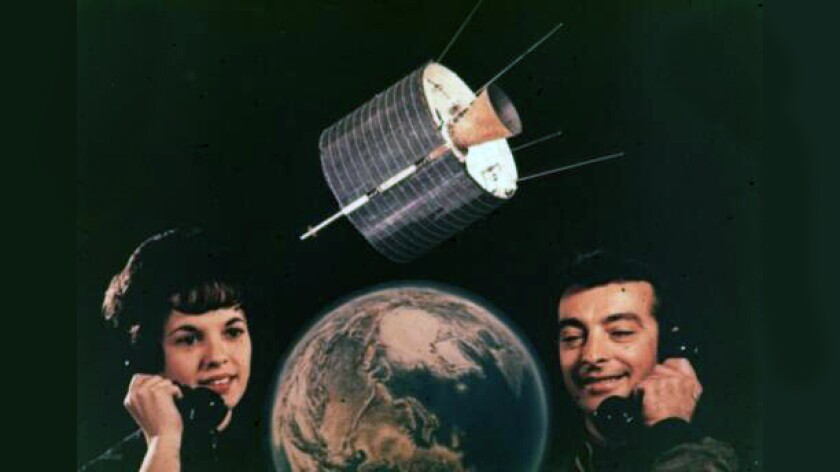The talks come at a time when London-based Inmarsat is likely to merge with Viasat and another London-based company, OneWeb, is to be acquired by Eutelsat of Paris.
SES said: “SES confirms that the company has engaged in discussions regarding a possible combination with Intelsat. At this stage, there can be no certainty that a transaction would materialise.”
The company – originally Société Européenne des Satellites – launched its first satellite in 1988, largely for Sky, then owned by Rupert Murdoch. Its shareholders from the start have included the government of Luxembourg.
Its market cap is €2.74 billion, with shares reaching €6 this morning, though that is well down on the 52-week high of €9.02, in May 2022. At that price, it would have been worth €4 billion.
Intelsat is older, having started as an international treaty organisation in 1962, but was privatised in 2001. Its first, revolutionary satellite (pictured) was Intelsat 1, better known at the time as Early Bird.
It filed for Chapter 11 bankruptcy in 2020 with debts of US$16 billion – cut to $7 billion in its reorganisation.
Ironically, in 2017 it was planning to merge with OneWeb, then a start-up. But Intelsat withdrew as it was concerned about OneWeb’s debts, and in 2020 OneWeb itself went into Chapter 11, to be rescued by the UK government and Bharti Global of India.
One report, from Bloomberg, which broke the story, said: “SES is aiming to reach an agreement with Intelsat as soon as the next few weeks.” Intelsat did not comment, and SES issued its 46-word statement, including the sentence: “The board of SES remains fully committed to acting in the best interest of SES and its shareholders.”
SES has been flirting with Intelsat for months. A report by the Financial Times in August 2022 said they were in talks, “to ensure they are not left isolated in a fast-consolidating industry that is battling challengers such as Elon Musk”.
The FT said one unnamed person close to the talks had told it: “Neither wants to be the last one standing.”
The biggest deal facing the industry is Viasat’s proposed $7.3 billion acquisition of Inmarsat, which is slowly proceeding through regulatory enquiries.
But by the end of the year, its likely that Elon Musk’s Starlink, owned via SpaceX, will face three well-established competitors, though most of them still have fleets from the geostationary era: Eutelsat/OneWeb; SES/Intelsat; and Viasat/Inmarsat, at a time when the industry is moving to low Earth orbit (LEO) fleets, with latencies of a few milliseconds.
Coming over the horizon though is a new LEO competitor, Amazon-backed Project Kuiper. The Federal Communications Commission (FCC), the US regulator, told Amazon last month that it can go ahead with Kuiper, a project valued at $10 billion – well above the valuation of any of the Eutelsat, SES and Viasat plans.






